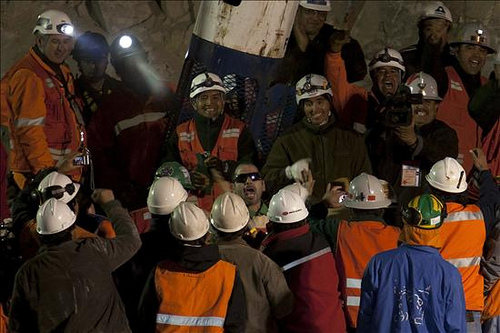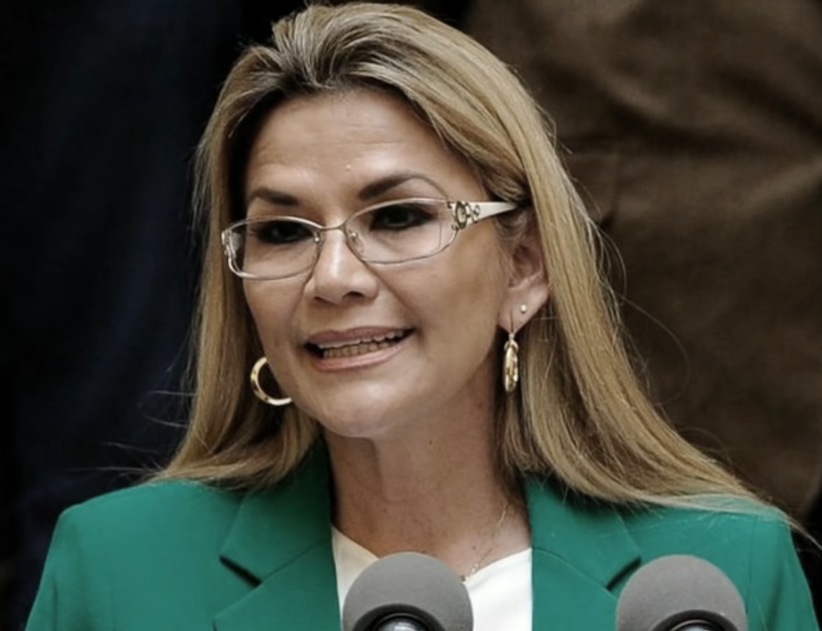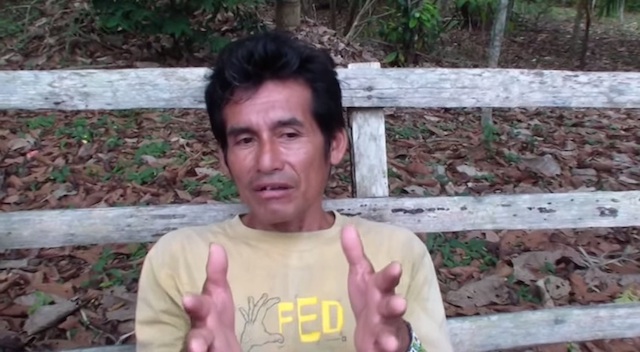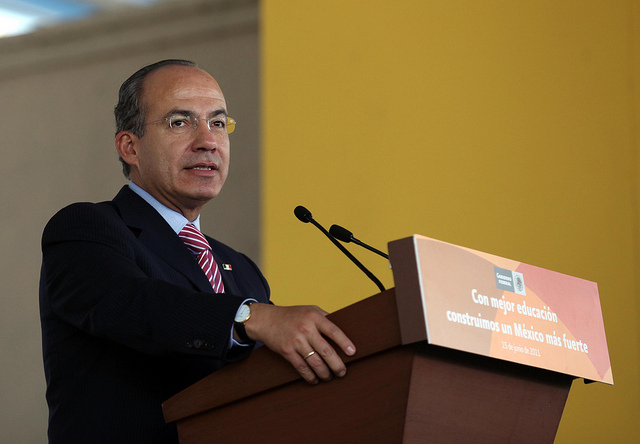
Chile, Latin America: Week in Review
First Chilean Miner Rescued Late Tuesday Night To Cheers From Crowd
October 13, 2010 By Staff

Chilean workers cheer at the site where the first miner was rescued.
Today in Latin America
Top Story — Late on Tuesday evening, after 69 days stuck underground, Florencio Avalos became the first of the 33 Chilean trapped miners to make it to the surface.
Avalos emerged from the slim capsule that pulled him through the 28-inch-wide shaft to screams from the crowd and shouts of “Chi chi chi, le le le!” as hundreds of balloons were released into the sky at the rescue site, named Camp Hope.
A medical team began to assess Avalos, a foreman, in a triage area as rescue worker Robert Rios Seguel prepared to go down into the mine to begin the task of bringing up the second miner, Mario Sepulveda.
The rescue of Avalos marks the longest time anyone has ever been trapped underground and survived, after the miners became trapped on August 5 when the upper galleries of the San Jose copper and gold mine collapsed.
The mine site was already packed with the international media and the miner’s families and friends, when Chilean President Sebastian Piñera arrived to watch the rescue efforts.
“I hope you bring us back the miners,” Piñera said to rescue worker Manuel Gonzalez when he entered the “Phoenix” capsule to begin rescuing Avalos, according to Bloomberg.
If all goes according to plan, the remaining miners will be rescued at a rate of about one an hour, barring any obstacles or accidents during the capsule’s ascents.
U.S. President Barack Obama issued statement of support for the miners and said his “thoughts and prayers” were with them.
“While that rescue is far from over and difficult work remains, we pray that by God’s grace, the miners will be able to emerge safely and return to their families soon,” Obama said, according to the statement.
Just Published at the Latin America News Dispatch
- Criminal deportations have reached a record high under the Obama Administration. Raisa Camargo reports from Washington.
- Photojournalist James Rodríguez explores the controversy surrounding Goldcorp’s Peñasquito Mine in Mazapil, Mexico.
- A new report from the Pew Hispanic Center finds that the Latino vote leans toward the Democrats in advance of mid-term elections. Alison Bowen has more at her blog Beyond Borders.
Headlines from the Western Hemisphere
North America
- Despite complaints about deportations of undocumented immigrants who have not been convicted of crimes, the Board of Supervisors voted unanimously Tuesday to renew an agreement with federal immigration officials to screen inmates’ immigration status in Los Angeles County jails.
- The Obama administration lifted the moratoriumon deepwater oil and gas drilling on Tuesday, but it will be weeks or months before drilling resumes while industry and government regulators scramble to meet strict new rules intended to prevent another disaster like the Deepwater Horizon explosion and spill.
- Mexico’s drug traffickers are likely to lose customers in America’s largest pot consuming state if California legalizes marijuana, but they won’t lose much money overall because California’s residents already prefer to grow their own, according to a study released Tuesday.
Caribbean
- The city of North Miami, Fla., raised more than $100,000 for Haitian earthquake relief but so far has failed to send the money, city officials acknowledged.
- The United Nations peacekeeping mission in Haiti today voiced concern at reports that arms are being distributed as the impoverished and earthquake-devastated country prepares to hold elections next month.
- Protesters in the Dominican Republic claim a police bullet has killed a demonstrator during a clash between authorities and people demanding repairs to a highway.
Central America
- Spain will contribute a total of $58.6 million for Guatemalan reconstruction over the next two years, Madrid’s secretary of state for international cooperation said on Tuesday.
- A high-level commission has been set up to look into appalling medical experiments carried out by U.S. researchers on hundreds of Guatemalans in the 1940s, and the government of this Central American country is debating alternative ways for the United States to make reparations.
- Salvadoran President Mauricio Funes Monday proposed the creation of a hemispheric early response system to allow the Organization of American States (OAS) to prevent future coups in the region and establish criminal sanctions for those who break democratic order.
- One of the two Guatemalans injured when a small plane carrying 173 kilos (381 pounds) of cocaine crashed over the weekend in Costa Rica has died, the Security Ministry said.
Andes
- Colombia’s inspector general announced disciplinary charges Tuesday against two former agriculture ministers in a case involving the alleged diversion of funds from a small-farmers subsidy program to wealthy hacienda owners.
- Colombia was among five countries that the United Nations General Assembly elected Tuesday to serve two-year terms on the Security Council
- French oil major Total SA (TOT) agreed to transfer a 20% stake in the Bolivian Ipati and Aquio gas project to Russia’s Gazprom (GAZP.RU), the French company said Tuesday in a statement.
Southern Cone
- The Chilean Senate voted Tuesday to raise mining royalties in an effort to collect $1 billion over the next three years to rebuild after the February 27 earthquake.
- Argentina’s economy minister Amado Bodou said Tuesday that he does not want the International Monetary Fund to help settle Argentina’s debt of $7.5 billion to developed Paris Club nations.
- Uruguay is seeking to boost its agricultural exports to Saudi Arabia as the two nations seek a food security partnership.
Image: Globovisión @ Flickr.
Subscribe to Today in Latin America by Email
< Previous Article

October 12, 2010 > Staff
Gunmen Kill Eight Mexican Police Officers During An Ambush In Sinaloa
Next Article >




